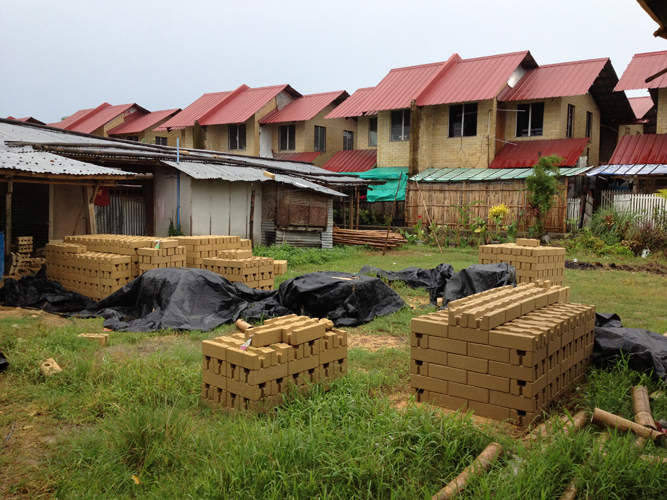Housing for urban poor: alternative financing in Ghana
Introduction
The housing market in Ghana presents a complex landscape, especially for the urban poor. As cities grow and urbanization accelerates, the demand for adequate and affordable housing increases. However, the gap between income levels and housing prices remains a significant barrier for low-income households. This article delves into the current state of the housing market in Ghana, explores the financing instruments available, and highlights the challenges faced by the urban poor in accessing housing finance. Additionally, it proposes alternative strategies to address these challenges and provide sustainable solutions for affordable housing.

The Housing Market in Ghana
Ghana’s housing market is characterized by a significant disparity between the cost of housing and the income levels of the urban poor. According to recent studies, the average house price in urban areas is far beyond the reach of low-income households. This gap is exacerbated by the rapid urbanization rate, which has led to a surge in demand for housing. The urban poor, who constitute a substantial portion of the population, are often left with limited options for secure and affordable housing.
The housing market in Ghana is dominated by informal settlements, which lack basic infrastructure and are prone to environmental hazards. These settlements are often the only affordable option for the urban poor, who cannot afford the high prices of formal housing. The lack of affordable housing options has led to overcrowding, poor living conditions, and increased vulnerability to health risks.
Financing Instruments and Accessibility
Access to housing finance is a critical challenge for the urban poor in Ghana. Conventional mortgage finance, which is the primary instrument for housing finance, is largely inaccessible to low-income households. High payment-to-income ratios, the need for substantial down payments, and long repayment periods make it difficult for the urban poor to secure mortgages. These barriers are further compounded by the lack of formal employment and stable income sources, which are often required by financial institutions to approve housing loans.
Microfinance institutions (MFIs) have emerged as a potential alternative for providing housing finance to the urban poor. However, their reach and effectiveness are limited by several factors. The high interest rates charged by MFIs can be a significant burden for low-income households, making it difficult for them to repay loans. Additionally, the lack of collateral and the absence of a formal credit history can further restrict access to housing microfinance.
Challenges Faced by the Urban Poor
The urban poor in Ghana face numerous challenges in accessing housing finance. One of the primary challenges is the high cost of housing, which is beyond the reach of many low-income households. The average house price in urban areas is significantly higher than the average income of the urban poor, making it difficult for them to afford even basic housing.
Another significant challenge is the lack of access to formal financial services. Many low-income households do not have bank accounts or access to formal credit. This lack of financial inclusion makes it difficult for them to save money or access loans for housing. The absence of a formal credit history and stable employment further restricts their ability to secure housing finance.
Environmental and health risks are also major concerns for the urban poor. Informal settlements, which are often the only affordable option for low-income households, lack basic infrastructure such as water, sanitation, and electricity. These settlements are prone to environmental hazards such as flooding and landslides, which can lead to significant health risks and loss of life.
Alternative Housing Finance Strategies
To address the challenges faced by the urban poor in accessing housing finance, several alternative strategies have been proposed. These strategies aim to provide sustainable and affordable housing finance options for low-income housing development in Ghana.
Spatial Planning and Housing Development Financing
One proposed strategy is to integrate housing development financing into the spatial planning system. This approach involves the government and private sector working together to develop affordable housing projects in well-planned urban areas. By incorporating housing finance into the spatial planning process, it is possible to create affordable housing options that are integrated with essential infrastructure and services.
Housing Microfinance Development
Another strategy is to develop and make housing microfinance more accessible to low-income households. This involves working with microfinance institutions to design housing finance products that are tailored to the needs of the urban poor. These products should have lower interest rates, flexible repayment terms, and require less collateral. Additionally, efforts should be made to improve financial literacy among low-income households to help them better manage their finances and access housing microfinance.
Community-Based Housing Development Initiatives
Community-based initiatives can also play a crucial role in mobilizing labour for housing development at reduced costs. These initiatives involve local communities in the planning and construction of housing projects, reducing the overall cost of development. By leveraging community resources and labour, it is possible to create affordable housing options that are tailored to the needs of the urban poor.
Conclusion
The housing market in Ghana presents significant challenges for the urban poor, who face barriers to accessing affordable and secure housing. The gap between income levels and housing prices, combined with the inaccessibility of conventional housing finance, makes it difficult for low-income households to secure adequate housing. However, by implementing alternative housing finance strategies, it is possible to provide sustainable and affordable housing options for the urban poor. Integrating housing development financing into the spatial planning system, developing housing microfinance, and mobilizing community resources through community-based initiatives can help bridge the gap and improve housing conditions for the urban poor in Ghana.
External Links
For further reading and detailed information on the housing market and financing challenges in Ghana, the following external links can be useful:
